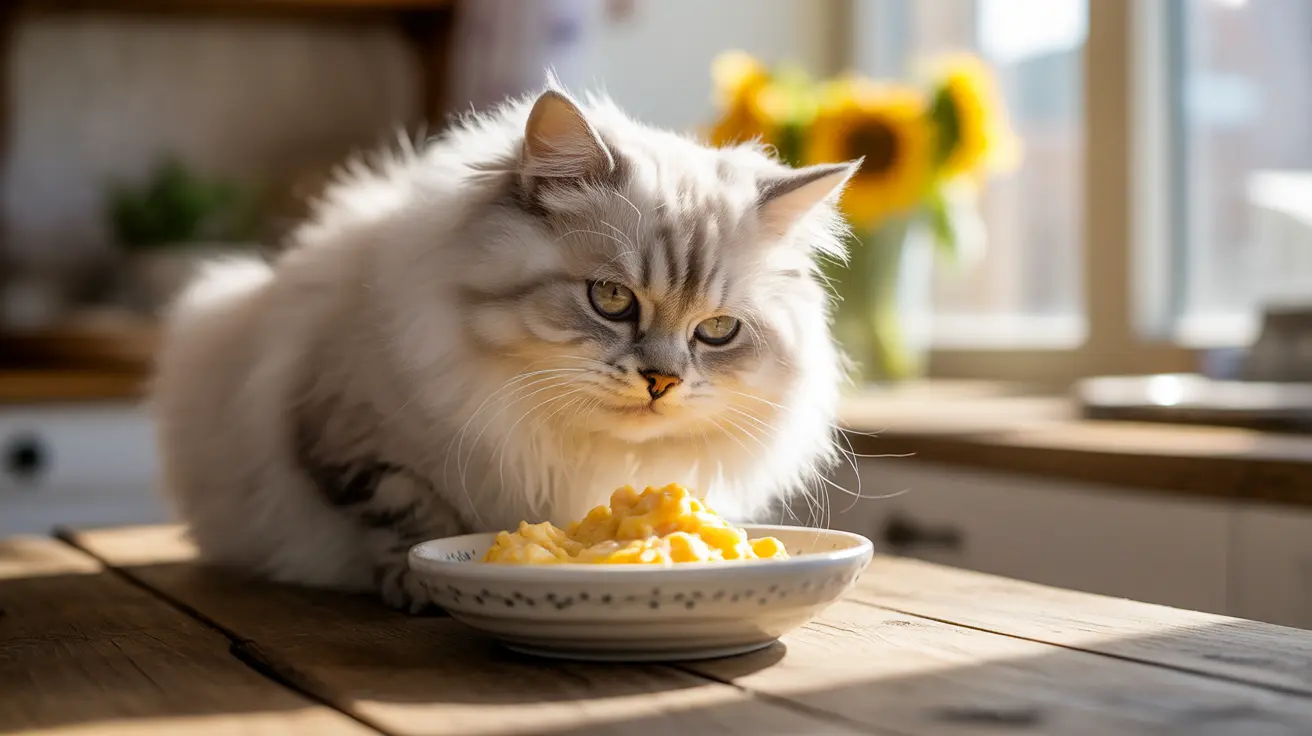Commercial Cat Food: The Breakfast Foundation
The most nutritionally complete breakfast option for cats remains high-quality commercial cat food, available in both wet and dry varieties. Wet food provides essential moisture and typically contains higher protein levels, while dry kibble offers convenience and dental benefits.
Many veterinarians recommend combining both types for optimal nutrition:
- Wet food: 70-80% moisture content, excellent for hydration
- Dry food: Helps maintain dental health and provides different textures
- Mixed feeding: Offers the benefits of both while keeping meals interesting
Safe Protein-Rich Breakfast Options
Beyond commercial cat food, several protein-rich options can supplement your cat's breakfast menu:
Eggs as a Breakfast Treat
Cooked eggs make an excellent occasional breakfast addition for cats. Always serve them:
- Fully cooked (never raw)
- Plain, without seasonings or oils
- In small portions (1-2 tablespoons maximum)
- Without shells
Lean Meats
Unseasoned, cooked lean meats can be offered as part of breakfast:
- Chicken breast
- Turkey
- Lean beef
- Cooked fish (remove all bones)
Creating a Healthy Breakfast Routine
Cats thrive on consistency, but they don't naturally eat large meals like humans. Consider these factors when establishing a breakfast routine:
- Serve breakfast at the same time each day
- Maintain appropriate portion sizes
- Monitor your cat's weight and adjust portions accordingly
- Ensure fresh water is always available
Foods to Avoid at Breakfast
Several common breakfast items should never be fed to cats:
- Milk and dairy products (most cats are lactose intolerant)
- Processed meats like bacon or sausage
- Sugary cereals or pastries
- Anything containing onions or garlic
- Caffeinated beverages
Frequently Asked Questions
What are the best protein-rich human foods I can safely feed my cat for breakfast?
The best protein-rich human foods for cats include plain cooked eggs, unseasoned cooked chicken, turkey, and lean beef. These should only supplement, not replace, their regular cat food diet.
Can I give my cat eggs for breakfast, and how should they be prepared?
Yes, cats can eat eggs for breakfast, but they must be fully cooked and served plain without seasonings, oils, or butter. Scrambled or hard-boiled eggs are ideal, offered in small portions of 1-2 tablespoons.
Is it okay to add cooked grains or vegetables to my cat's breakfast, and which ones are safe?
While cats don't require grains or vegetables, small amounts of cooked oats, rice, carrots, or green beans can be offered occasionally. These should make up no more than 10% of their diet.
Why should I avoid feeding my cat dairy, processed meats, or seasoned human breakfast foods?
Most adult cats are lactose intolerant, making dairy products problematic. Processed meats contain excessive salt and fat, while seasonings can be toxic. These foods can cause digestive issues, obesity, and other health problems.
How can I create a balanced breakfast routine that matches my cat's natural eating habits?
Establish consistent feeding times, offer appropriate portions of high-quality cat food, and occasionally supplement with safe human foods. Consider splitting daily portions into smaller meals to match cats' natural grazing behavior.
Remember that every cat is unique, so always consult with your veterinarian before making significant changes to your cat's diet or breakfast routine.






